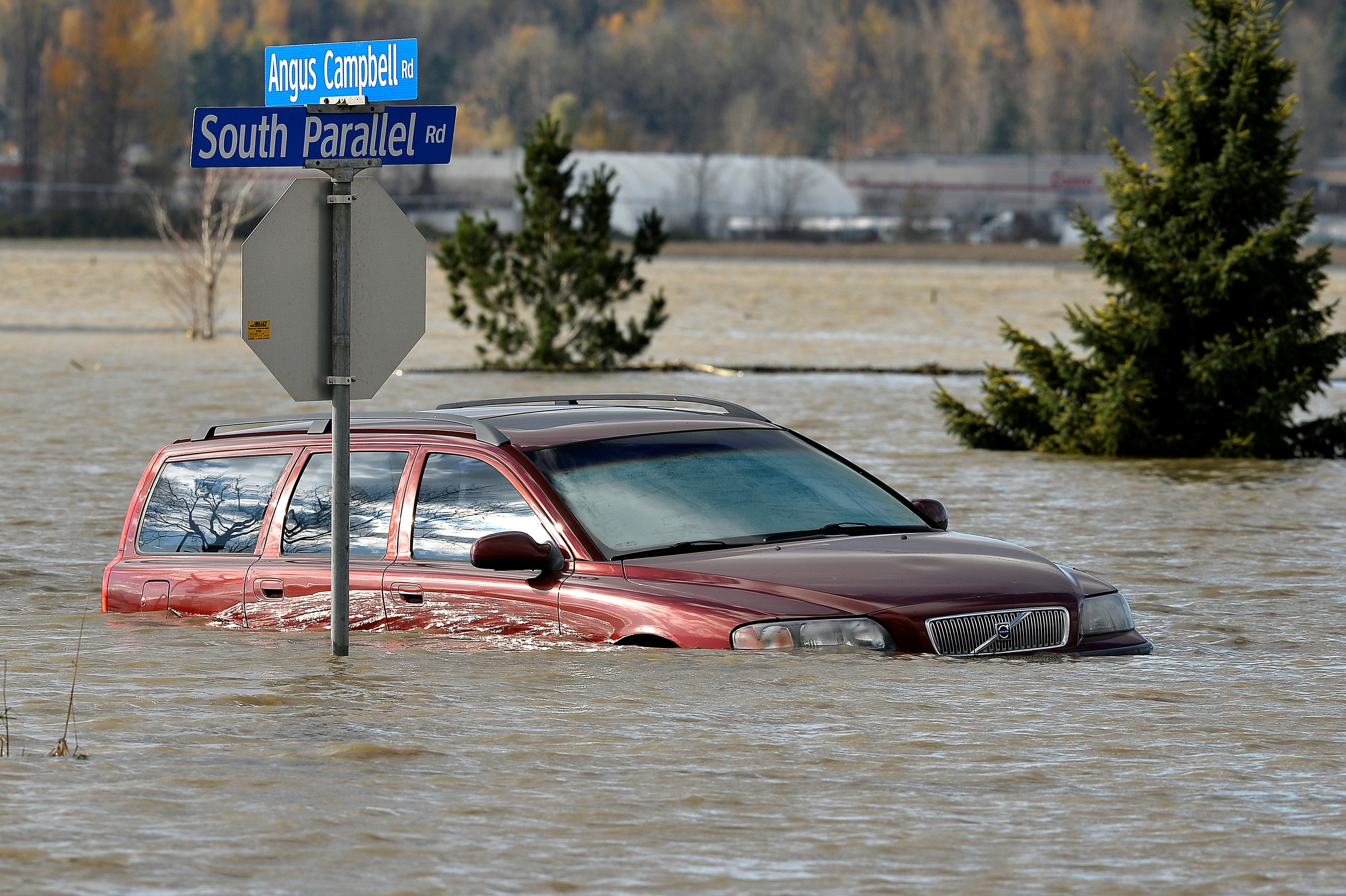Canada: Deadly storm declared ‘worst in a century’ as transport links cut to Vancouver
A woman was killed in landslide caused by incessant rains, while at least two people are missing
A deadly “once in a century” storm has killed at least one and severed road and rail links around Vancouver, Canada.
Two days of heavy rain across British Columbia has led to flooding and landslides and shut roads, prompting the evacuation of an entire town. The rains were caused by an “atmospheric river” – a narrow path of air with excessive water vapour.
A woman was killed in a highway landslide about 100 miles northeast of Vancouver. At least two others are missing.
Thousands of people were forced to leave their homes after the storm struck on Sunday. Rescue helicopters lifted 275 people, including 50 children, from a section of highway blocked by landslides near the mountain town of Agassiz.
More than 7,000 residents of Merritt city, just over 120 miles from Vancouver, were asked to evacuate on Monday after the river overflowed and cut off bridges and forced the sewage treatment plant to shut down. Some residents were still stuck in their homes on Tuesday, officials said.
The towns of Chilliwack and Abbotsford have also ordered partial evacuations.
Rail access to the port of Vancouver was completely cut off by flooding and mudslides. The port reportedly moves about $440m (over £325m) of cargo every day.
Port spokesperson Matti Polychronis said: “All rail service coming to and from the Port of Vancouver is halted because of flooding in the British Columbia interior.”
A portion of Coquihalla Highway, which connects Vancouver to interior areas, was severely damaged. The Trans-Canada Highway was also submerged.
Public safety minister Mike Farnworth said that in some cases such as Coquihalla, “it could be several weeks or months” before things return to normal. “We won’t know that until the experts do the work that needs to be done and they’re doing it right now,” he said.
He added that the province was considering imposing a state of emergency after the, “once in a century” storm.
The floods temporarily shut down much of the movement of wheat and canola oil from Canada. The Trans Mountain pipeline, which carries up to 300,000 barrels of crude oil a day from Alberta to the Pacific coast, was shut down.

Across the border, more than 50,000 people in Washington State remained without power on Tuesday. Schools in and around the border city of Bellingham were closed for the second day in a row.
In the north Washington city of Ferndale, officials urged people to evacuate from areas near the rising Nooksack River, which they fear could breach the levee. Governor of Washington, Jay Inslee, declared a severe weather emergency in 14 counties.
This is the second large-scale catastrophic event in less than six months after wildfires gutted an entire town during a record-breaking heat dome.
Additional reporting by agencies
Join our commenting forum
Join thought-provoking conversations, follow other Independent readers and see their replies
Comments
Bookmark popover
Removed from bookmarks